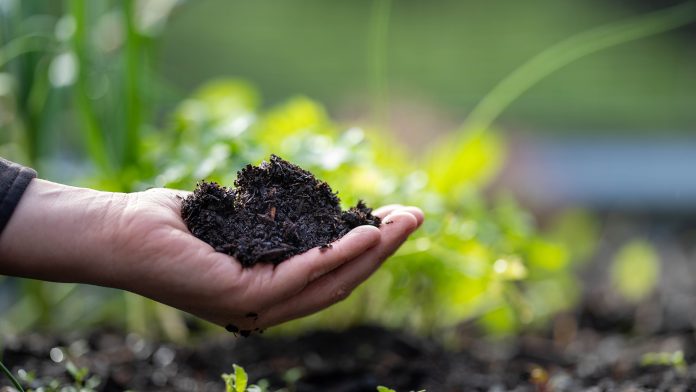According to a new study from researchers at the Centre for Microbiology and Environmental Systems Science at the University of Vienna, warmer soils result in soil microbiome diversity.
Published in Science Advances, the new study represents a shift in our understanding of how the soil microbiome influences the global carbon cycle and possible feedback mechanisms on the climate.
Until now, scientists have believed that higher soil temperatures accelerate the growth of microbes, increasing the release of carbon into the atmosphere.
However, the increased release of carbon is caused by the activation of previously dormant bacteria.
Soils: The largest reservoir of organic carbon
Microorganisms dictate the global carbon cycle, breaking down this organic matter and releasing carbon dioxide.
As temperatures rise, microbial communities are thought to emit more carbon dioxide, accelerating climate change in a process known as soil carbon-climate feedback.
“For decades, scientists have assumed that this response is driven by increased growth rates of individual microbial taxa in a warmer climate,” said Andreas Richter, lead author of the study and professor at the Centre for Microbiology and Environmental Systems Science.
A diverse soil microbiome
The team visited a subarctic grassland in Iceland that has undergone over half a century of geothermal warming. The warming caused higher soil temperatures compared to surrounding areas.
Active bacterial taxa were identified by collecting soil cores and using isotope probing techniques. They compared their growth rates at both ambient and elevated temperatures, with the latter being 6 °C higher.
“We saw that more than 50 years of consistent soil warming increased microbial growth at the community level,” said Dennis Metze, PhD student and primary author of the study.
“But remarkably, the growth rates of microbes in warmer soils were indistinguishable to those at normal temperatures.”
The researchers found that warmer soils harboured a more varied array of active microbial taxa.
Soil microbial activities in a future climate
“Understanding the complexities of the soil microbiome’s reaction to climate change has been a considerable challenge, often rendering it a ‘black box’ in climate modelling,” added Christina Kaiser, associate professor at the Centre.
The findings pave the way for more accurate predictions of microbial behaviour and its consequent effects on carbon cycling in the evolving climate scenario.
The insights from this study highlight the diverse microbial responses to warming and are vital for forecasting the soil microbiome’s impact on future carbon dynamics.









